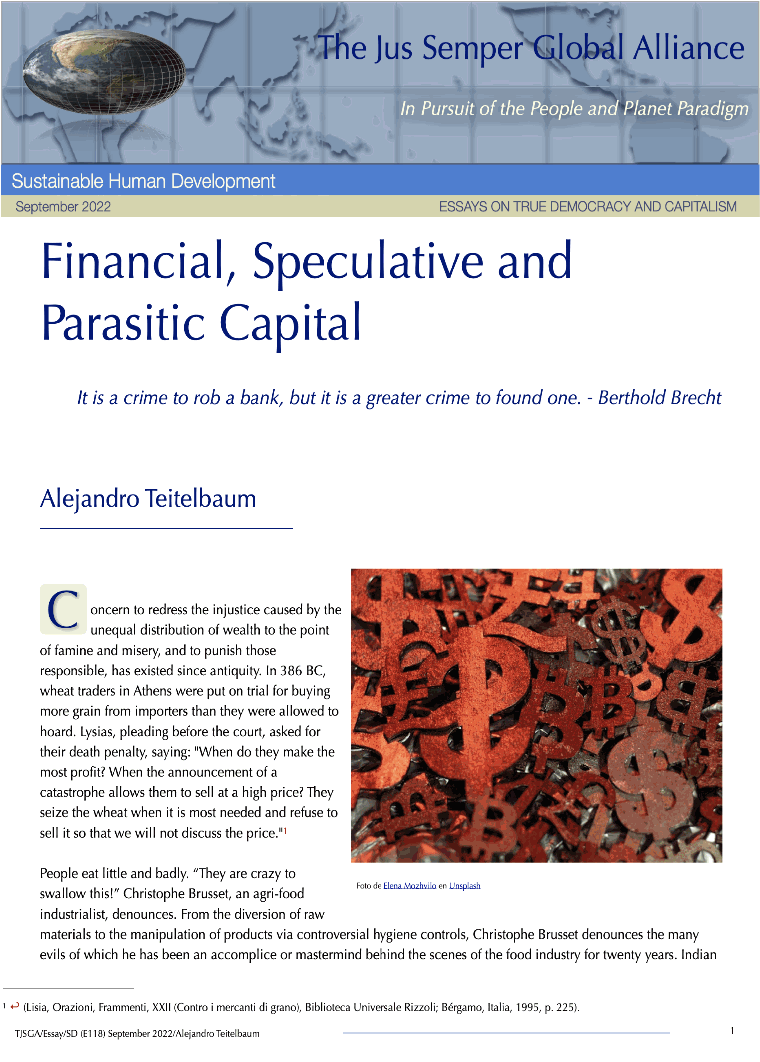Financial, Speculative and Parasitic Capital It is a crime to rob a bank, but it is a greater crime to found one. - Berthold Brecht
Alejandro Teitelbaum People eat little and badly. “They are crazy to swallow this!” Christophe Brusset, an agri-foodindustrialist, denounces. From the diversion of raw materials to the manipulation of products via controversial hygiene controls, Christophe Brusset denounces the many evils of which he has been an accomplice or mastermind behind the scenes of the food industry for twenty years. Indian paprika stuffed with peppercorns, Chinese green tea treated with pesticides, fake Moroccan saffron, cheeses transformed into veal, fruit jam without fruit, oregano cut into olive leaves, and so on. Fraud with raw materials in the food industry is also part of this mafia system.
|

- © The Jus Semper Global Alliance
| Home |  | Resources |  | Economic Data |  | Financial, Speculative and Parasitic Capital |


